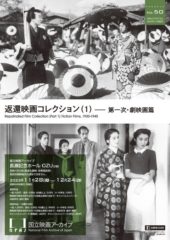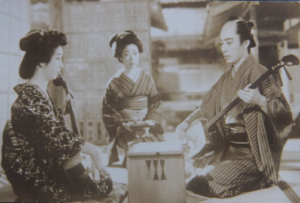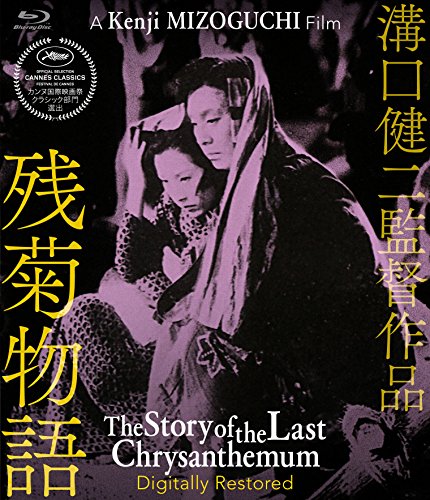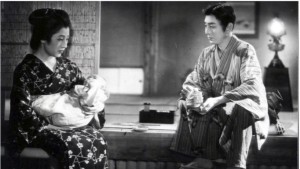REPATRIATED FILM COLLECTION: FICTION FILMS, 1930-1945

Rediscovering a Historic Treasure Trove
Venue: National Film Archive of JapanNovember 28 (Tue) - December 24 (Sun), 2023
Official website: www.nfaj.go.jp/english/exhibition/repatriated_film202310/
Theater website: www.nfaj.go.jp/english/visit/access/
Theater website: www.nfaj.go.jp/exhibition/repatriated_film202310/
Theater website: www.nfaj.go.jp/english/
Tariff: General: ¥520, Student/Senior: ¥310, Under 16: ¥100
Advance tickets: Ticket sales starts 3 days before the screenings. https://www.e-tix.jp/nfaj/en/
Talk event: Some films are with Piano or Benshi talk
Title: 返還映画コレクション(1) ――第一次・劇映画篇 (Henkan Eiga Collection (1) Dai Ichiji Gekieigahen)
The year 1964 marks a turning point for Japan: with the broadcast of the Olympics, the world could see and appreciate just how much the nation had modernized in the 19 years since war’s end. But it was also a milestone year for culture, after some 1,400 Japanese films from the prewar and wartime periods were discovered in the US Library of Congress. After preliminary research and negotiations between the U.S. and Japan, an agreement was signed in 1967, and the precious reels were returned to their country of origin.
These "repatriated films" subsequently formed the foundation of the National Film Archive Japan's (NFAJ) collection, and include works that were collected by the US and its allies as material for psychological and information warfare, along with narrative features that had been deemed “undemocratic” and were prohibited from being shown after the war by the Occupation authorities.
The collection initially consisted of 59 narrative films, 52 cultural and documentary films, and 372 newsreels, for a total of 483 films. The repatriation continued with four rounds, into the 1990s. NFAJ has now conducted a “reexamination of the history of the collection” and will be gradually (re)exhibiting the films. The first batch to be screened, from the first repatriation, includes 32 films, some of which are silent and will be screened with musical accompaniment. There are two films with English subtitles—but be sure to check all the titles, as there are many more to be savored.
TSUKIYO GARASU, 月夜鴉
Nov. 30 (Thu), 2023: 15:00
Dec. 9 (Sat), 2023: 15:30
Dec. 22 (Fri), 2023: 19:00
 Tsukiyo Garasu, 月夜鴉
Tsukiyo Garasu, 月夜鴉
1939, 100 min, 35mm, BW, with English subtitles
Director: Kintaro Inoue
In this story that has subsequently been re-filmed several times, screwball comedy mixes with music to create a traditional concerto of love and laughter. Both grow as a female shamisen master (Toshiko Iizuka) trains her apprentice (Kokichi Takada), a petulant younger man, in the art of the art form, and he gets to teach her a thing or two as well. Director Kintaro Inoue had begun his career during the silent film era and worked with stars Tsumasaburo Bando and Ryunosuke Tsukigata early on.
THE STORY OF THE LAT CHRYSANTHEMUM, 殘菊物語
Nov. 28 (Sun), 2023: 15:00
Dec. 1 (Fri), 2023: 13:00
 The Story of the Last Chrysanthemum, 殘菊物語
The Story of the Last Chrysanthemum, 殘菊物語
1939, 143 min, 35mm, BW, with English subtitles
Director: Kenji Mizoguchi
Mizoguchi’s 1939 The Story of the Last Chrysanthemums (aka The Story of the Late Chrysanthemums) is often considered his greatest pre-war achievement, especially for its luminous mise-en-scène. Set in 1885, it tells the story of wet nurse Otoku (Kakuko Mori), who lives at the home of a famous Kabuki actor, where she falls in love with his unmarried younger son and apparent heir Kikunosuke Onoe (played in his movie debut by stage actor Shotaro Hanayagi). Otoku is the only one in Kikunosuke’s immediate circle who has the guts to disclose his artistic shortcomings and urge him to improve himself.
 The Story of the Last Chrysanthemum
The Story of the Last Chrysanthemum
Otoku is dismissed from her position due to her relationship with the young master, but Kikunosuke tracks her down and says he wants to marry her. His family banishes him to Nagoya for a year, and after joining a traveling troupe, he takes up housekeeping with Otaku, although he’s still forbidden from marrying her. It’s a hardscrabble life on the road and after some time, Otaku becomes very sick. When Kikunosuke is given a chance to return to Tokyo if he leaves her behind, he jumps at the chance. A reconciliation comes, but it’s much too late.
National Film Archive of Japan
Please be sure to check with the theater before going.
